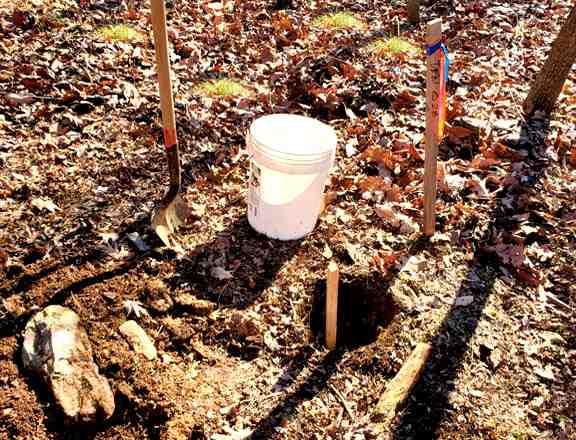Land Failed Perc Test? Beyond Traditional Septic Systems
SEPTIC ALTERNATIVES :
Traditional septic systems rely on the soil's ability to absorb and filter water efficiently.
Alternative septic solutions like the Droilet™ offer innovative options.
Share this post

Building on Land that Won't Perc
Understanding the Importance of a Soil Percolation Test for Building Sites
When embarking on a construction project, especially in rural or remote areas, one of the critical steps in the planning process is conducting a soil percolation test, often referred to as a perc test. This official assessment plays a crucial role in determining whether a building site is suitable for the installation of a traditional septic system. In this article, we will explore what a soil percolation test is, why it is essential, and what happens when a site fails this test.
What Is a Soil Percolation Test?
A soil percolation test, commonly known as a perc test, serves as a fundamental assessment to evaluate the suitability of soil for the installation of a septic system and the treatment of sewage effluent. The primary objective of this test is to determine the water absorption rate of the soil at a specific building site.
As per Maryland.gov, the suitability of soil for subsurface sewage disposal hinges on its physical characteristics and percolation rates. These physical characteristics encompass aspects such as the percentage of rock in the soil, evidence of groundwater presence, and the depth to rock and/or groundwater.
The Percolation Test Process
In practice, a percolation test involves measuring the rate at which clear water seeps into the soil from a standard test hole. The results of this test provide valuable insights into how well the soil can absorb and filter water, which is crucial for the proper functioning of a septic system.
State-Specific Guidelines
It's essential to note that each state has its own set of guidelines and regulations governing soil percolation tests. These guidelines ensure that the test is conducted consistently and accurately across various regions, taking into account local soil conditions and environmental considerations.
Why Do Sites Fail a Perc Test?
Several factors can lead to a site failing a percolation test, rendering it unsuitable for a traditional septic system. Some of the common reasons include:
- Steep Slope: Sites with steep slopes may not allow for proper water absorption, which is essential for the septic system's functioning.
- Wetlands: Areas with high water tables or wetlands can pose challenges as they may not provide adequate space for the absorption of sewage effluent.
- Excessive Soil Percolation: Paradoxically, soil that drains too quickly can also be problematic, as it can lead to the contamination of local drinking water sources with untreated sewage.
Conventional Septic Systems and Site Suitability
Traditional septic systems rely on the soil's ability to absorb and filter water efficiently. When a site fails a percolation test, it typically indicates that building a house with a conventional septic system is not feasible.
Exploring an Alternative Septic Solution
Fortunately, when land does not pass a perc test, it doesn't necessarily mean that your building plans are doomed. The Environmental Protection Agency (EPA) has identified various alternative septic systems that may be approved for use in different areas. These alternative systems offer options for addressing sewage treatment needs even on challenging sites.
Introducing the Droilet™ as an Alternative
One notable alternative septic solution is the Droilet™, which is hailed as the world's first self-contained non-sewered sanitation unit. The Droilet™ offers several advantages, making it an attractive option for land that won't pass a perc test:
1. No perc test or drain field required:
Since it doesn't rely on soil absorption, the Droilet™ can be installed on sites that fail traditional perc tests.
2. Water not necessary for operation:
Unlike conventional septic systems, the Droilet™ doesn't require a constant water supply to function effectively.
3. Build on previously unbuildable land:
This innovative solution opens up opportunities to build on land that was once considered unsuitable for construction due to perc test failures.
4. Eco-Friendly Septic Alternative:
The Droilet™ is designed with environmental sustainability in mind, making it an eco-friendly choice for sewage treatment.
In conclusion
A soil percolation test, or perc test, is a critical step in determining whether a building site is suitable for a traditional septic system. When a site fails this test, it doesn't necessarily mean the end of your building plans, as alternative septic solutions like the Droilet™ offer innovative options to overcome the challenges posed by unsuitable soil conditions. Understanding the importance of perc tests and exploring alternative solutions can pave the way for successful and sustainable construction projects even on challenging sites.
